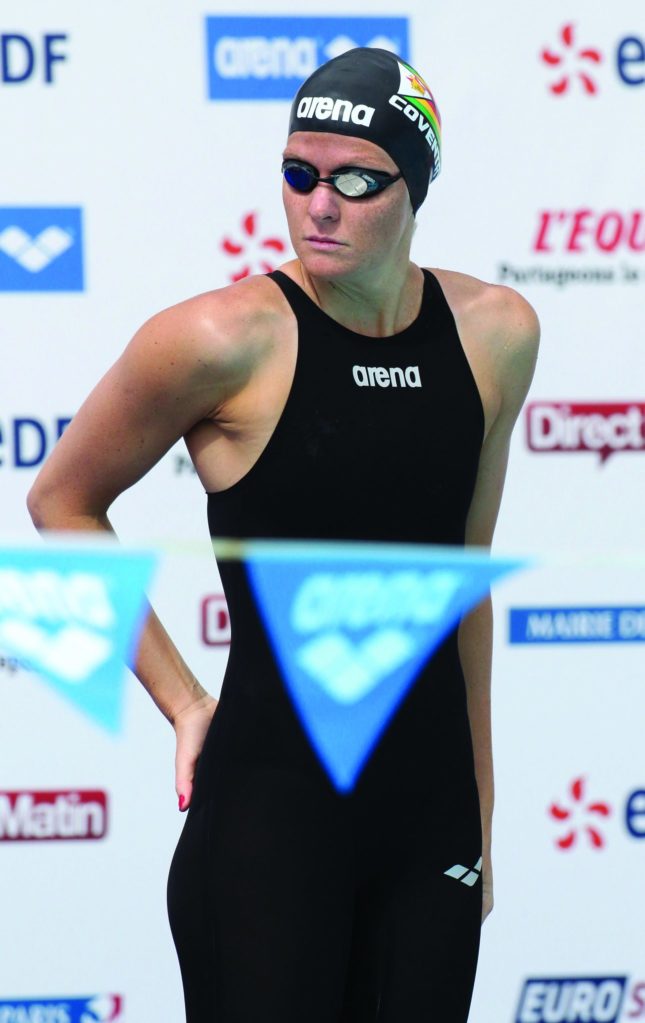Eric Lawson portrayed the Marlboro Man – the iconic strong rugged man, with cowboy hat, piercing eyes and chiseled jaw, who was always holding a cigarette. This year, Lawson became the third Marlboro actor to die of a smoking-related disease. The world has changed since smoking was advertised as the cool thing to do. Today, there is an increase in healthy options, even in fast food restaurants. Coffee shops are filled with the ‘athletic mum’ and her ‘workout friends’; healthy living is now a booming multibillion-dollar industry.
Companies realize the importance and profitability in marketing a healthy lifestyle. This lifestyle has become synonymous with strength, responsibility, sacrifice, and success. Companies sponsor athletes who embody these values to attract consumers to their products.
As with any partnership, sponsorship should be mutually beneficial. The athlete must be able to focus on training and competition, and sponsorship can provide the security they need. This ensures that their living costs are covered, including buying training equipment or travelling to competitions. In return, the sponsor receives brand enhancement and product awareness that could develop new or niche markets. It differentiates themselves from their competitors, increases overall sales and even contributes to goodwill in the community.
These are all valuable, but there are also pitfalls to sponsorships from both perspectives.
Loading...
Sponsor’s Perspective
- Athlete integrity: With increased social media, athletes are under the microscope more off the field than on it. Without integrity, the potential for a negative image created by an athlete’s behavior is increased.
- Athlete effort: An athlete has to put work into marketing their sponsor. An idle athlete (or athlete’s manager/agent) can create high costs for the company with little return.
- Lack of control: With injury, illness, or a sudden lack of performance or drop in rankings, a once high profile athlete may no longer be an effective marketing tool. However, a good role model can continue representing a company even after they have retired from playing sport.
- Brand diffusion: Do other companies or individuals sponsor your athlete? Are they reputable? Are there too many sponsors involved that limit the effectiveness of your athlete’s brand? Are you the main sponsor that receives the most benefits?
Athlete’s Perspective
- Sponsor’s integrity: Just as important as an athlete’s integrity and as with many of these points, it works both ways. As an example, if an athlete is endorsing a company that is found to be using child labor, the athlete will be seen as promoting it.
- Sponsor’s demands: These must be realistic and allow the athlete to focus on what they are supposed to do – train and compete. The athlete must also learn to manage their time to accommodate their obligations to the sponsor.
- Sponsor’s technology: I was under contract to swim for a swimsuit company because they had the best product at the time. My contract stated that should my rankings drop, so would my income. The sponsor failed to keep up with technology and its competitors came out with a better suit. Despite that, I remained loyal and went on to break the world record.
- Other athletes: The sponsor may have five other athletes and choose to market them more than you. Due to your exclusive relationship with the sponsor your branding could take a back seat. It is important that the athlete does not solely rely on the sponsor for marketing, but builds marketing campaigns and branding efforts to increase their own visibility and value.
Great sponsorships are the result of strong relationships backed by good communications. A clear contract should be developed with the above considerations taken into account, including exit strategies for ‘what if’ scenarios.
The increasing trend for active and healthy lifestyles places greater importance for athletes to endorse products. Companies need to find an athlete that fits with their philosophy and shares their values. Companies can find these athletes by looking for those with a winning record or great potential, but companies should choose these athletes based on personality, uniqueness, being a good role model, and their relationship with fans.
This will avoid any potential pitfalls and allow the magic of sport to keep us entertained.
Loading...
